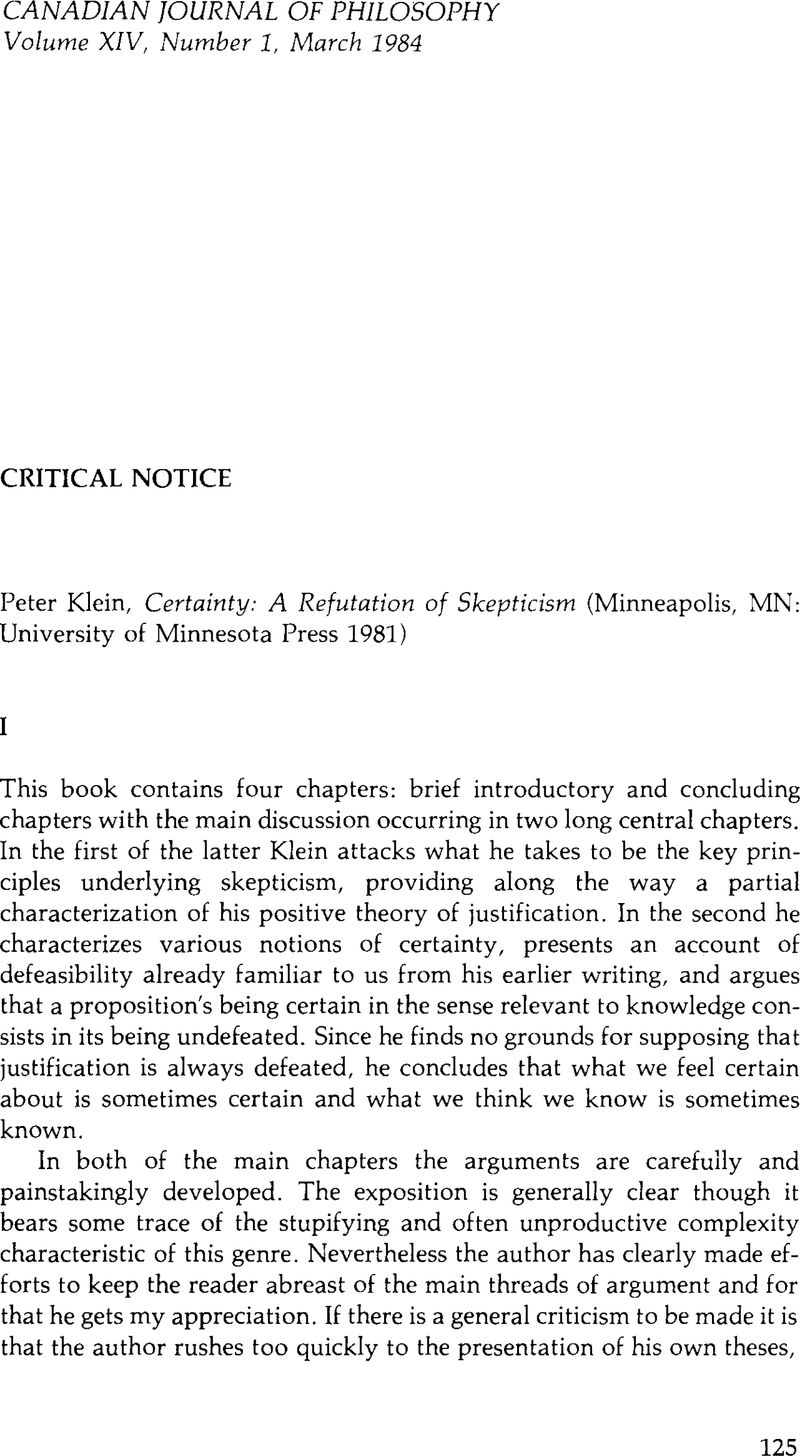No CrossRef data available.
Article contents
Peter Klein Certainty: A Refutation of Skepticism (Minneapolis, MN: University of Minnesota Press 1981)
Review products
Published online by Cambridge University Press: 01 January 2020
Abstract

- Type
- Critical Notice
- Information
- Copyright
- Copyright © The Authors 1984
References
1 Actually the set of propositions available as overriders is larger than the set available as evidence, for the former do not need to be grounded in a reliable basis set.
2 Dretske, Fred ‘Epistemic Operators,’ Journal of Philosophy, 67 (1970) 1003-13CrossRefGoogle Scholar
3 I think that this is a dubious interpretation of the main appeal of skepticism. My own view is that the force of skepticism derives from the direct intuitive appeal of its conclusion once the skeptic's story has been clearly told and our intuitions properly focused and instructed.
4 For a discussion of false theoretical beliefs in the context of a defeasibility account of knowledge, see Harman, Gilbert Thought (Princeton, NJ: Princeton University Press 1973)Google Scholar especially pp. 133-4. For a discussion of how false perceptual theories affect Harman's account of knowledge, see Williams, M. ‘Inference, Justification and the Analysis of Knowledge,’ Journal of Philosophy, 75 (1978) 249-63.CrossRefGoogle Scholar


